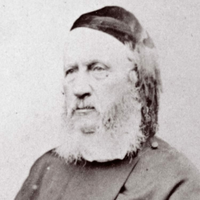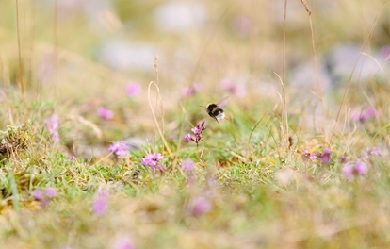Sundry Pieces: The Guide Post
Why thik wold post so long kept out,
Upon the knap, his eaerms astrout,
A-zenden on the weary veet
By where the dree cross roads do meet;
An’ I’ve a-come so much thik woy,
Wi’ happy heart, a man or bwoy,
That I’d a-meaede, at last, a’most
A friend o’ thik wold guiden post.
An’ there, wi’ woone white eaerm he show’d,
Down over bridge, the Leyton road;
Wi’ woone, the leaene a-leaeden roun’
By Bradlinch Hill, an’ on to town;
An’ wi’ the last, the way to turn
Drough common down to Rushiburn,—
The road I lik’d to goo the mwost
Ov all upon the guiden post.
The Leyton road ha’ lofty ranks
Ov elem trees upon his banks;
The woone athirt the hill do show
Us miles o’ hedgy meaeds below;
An’ he to Rushiburn is wide
Wi’ strips o’ green along his zide,
An’ ouer brown-ruf’d house a-most
In zight o’ thik wold guiden post.
An’ when the hay-meaekers did zwarm
O’ zummer evenens out vrom farm.
The merry maidens an’ the chaps,
A-peaerten there wi’ jokes an’ slaps,
Did goo, zome woone way off, an’ zome
Another, all a-zingen hwome;
Vor vew o’m had to goo, at mwost,
A mile beyond the guiden post.
Poor Nanny Brown, woone darkish night,
When he’d a-been a-painted white,
Wer frighten’d, near the gravel pits,
So dead’s a hammer into fits,
A-thinken 'twer the ghost she know’d
Did come an’ haunt the Leyton road;
Though, after all, poor Nanny’s ghost
Turn’d out to be the guiden post.



